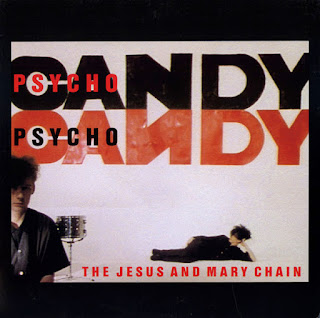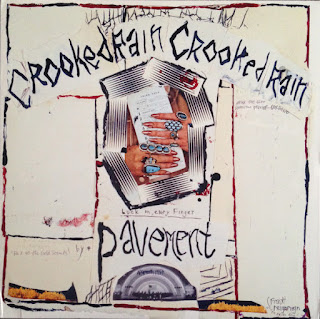The Jesus And Mary Chain - Psychocandy (Album Review)
The Jesus And Mary Chain - Psychocandy
(1985)
My copy: 2006 reissue by Rhino Records.
Psychocandy is the debut full-length from Scottish brothers Jim and William Reid. experimenting with extremely dense and tinny guitar tones, the brothers are credited with creating one of the first major entries into the canon of shoegaze and noise-rock music. The short, rigid and structurally simple tracks have industrial influence, though the core melodies are sweet and poppy.
The major single is the vacuous and light hearted “Just Like Honey,” which introduces the sharp guitar tones in a more sedated fashion. There are stunted elements of goth rock, though the Reid brothers are self aware enough to not delve into the long-winded writing tropes of the style. “The Living End” dives forward into a frenzy of screeching guitar; their chords almost totally obscured. The rhythm section, simplistic as it often is, is the main anchor through the whole album. The vocals have a disenfranchised charisma here, picking on The Velvet Underground mainly. The guitar is utterly destroyed with bass lifting the progression on “Taste The Floor” where the volume increases even further into instrumental choruses.
The four-on-the-floor charm of “The Hardest Walk” keeps things tied back to lo-fi brit-pop even with the crunching distortion of the guitars. “Cut Dead” showcases their softer side with reverberating vocals and percussion while “In A Hole” launches a hurricane of piercing feedback and industrial swells. The detached vocals on “Taste Of Cindy” keep the overall feel dark, though in reality the brothers are talented pop writers. “Never Understand” is the biggest juxtaposition of harsh, whistling feedback against sweet, Beach Boys-esque vocal melodies; it also features some of the coolest lead guitar tones. Songs like “Inside Me” and “You Trip Me Up” have dark seduction powers with the vocals chanting as the guitar drops out.
“Sowing Seeds” is very similar in essence to track one, though the progression is more elaborate, and the payoff is more immediate. Gripping as the insane feedback and growling distortion is, the album just packs in too many similar ideas near the end for much to truly stand out. The actual sound of the record is incredible, though it is clear they were fumbling about with short, simple writing ideas to make more room for their experimental guitar sounds. The weird lo-fi rumblings of “It’s So Hard” are charming but little is conveyed in such a short, blown-out idea.
Psychocandy is revolutionary, but I suspect none would be any wiser if a few relatively superfluous tracks were snipped away to create a more concise effort. Despite everything fading together slightly into the syrupy production across 14 short songs, the record is still impressive for filling in pop outlines with such harsh guitars.




Comments
Post a Comment